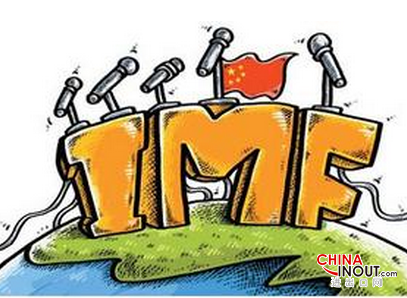在拖延數(shù)年之后,,美國國會終于關(guān)于通過了國際貨幣基金組織(IMF)的份額和治理改革方案,,該方案將會給予新興經(jīng)濟體更多的話語權(quán),,
中國在國際貨幣基金組織的投票權(quán)份額將從3.8%提高至6%,同時,,國際貨幣基金組織的基金總額將擴容一倍,,達到約6600億美元。這也是自IMF和世界銀行以管理戰(zhàn)后經(jīng)濟的名義成立以來最大的一次組織變動,。國際貨幣基金組織改革是在2010年世界金融危機的余波下,,經(jīng)過188個成員國同意提出的。
隨著中國的投票權(quán)份額的上升,,美國的份額將從16.7%下降到16.5%,。但美國依然保有一票否決權(quán)。印度的投票權(quán)份額將由現(xiàn)在的2.3%上升到2.6%,。最大的輸家是歐洲經(jīng)濟體,,他們將面臨投票權(quán)的減少。但是美國國會的共和黨員已經(jīng)開始擔心美國正在削弱的影響力,。
國際貨幣基金組織總裁克里斯蒂娜·拉加德對美國接受改革表示:“美國國會批準份額改革是值得歡迎的,、具有前瞻性的重要一步。這將加強國際貨幣基金組織在維護全球金融穩(wěn)定中的地位”
中國銀行認為這次改革“將會提高新興市場和發(fā)展中國家在國際貨幣基金組織的代表性和發(fā)言權(quán),,同時也有利于保護國際貨幣基金組織的信譽,、合法性和有效性”
上個月,國際貨幣基金組織剛剛決定將中國的貨幣人民幣,,和美元,,歐元,日元和英鎊一起作為儲備貨幣,。
The US Senate has adopted long-awaited reforms to give emerging economies a greater say in how the International Monetary Fund (IMF) is managed.
China's voting rights will rise to 6%, from 3.8% and IMF resources will double to about $660bn. This is the biggest shake-up since the IMF and the World Bank were set up to manage the post-World War Two economy. The IMF reforms were agreed by its 188 members in the aftermath of the world financial crisis in 2010.

As China's voting rights rise, the US will see its share drop from 16.7% to 16.5%. The US also retains its veto power. India's voting rights will rise to 2.6% from the current 2.3%. The biggest losers are European economies which will see their voting rights diminished. But Republicans in the US Congress had been concerned at the diminishing US influence.
IMF chief Christine Lagarde hailed the US adoption as a "a welcome and crucial step forward that will strengthen the IMF in its role of supporting global financial stability".
And China's Central Bank said the reform "will improve the representation and voice of emerging markets and developing countries in the IMF and is conducive to protecting the IMF's credibility, legitimacy and effectiveness".
Last month, the IMF decided to include China's currency, the renminbi, as a reserve currency, alongside the US dollar, the euro, the yen and the British pound.











